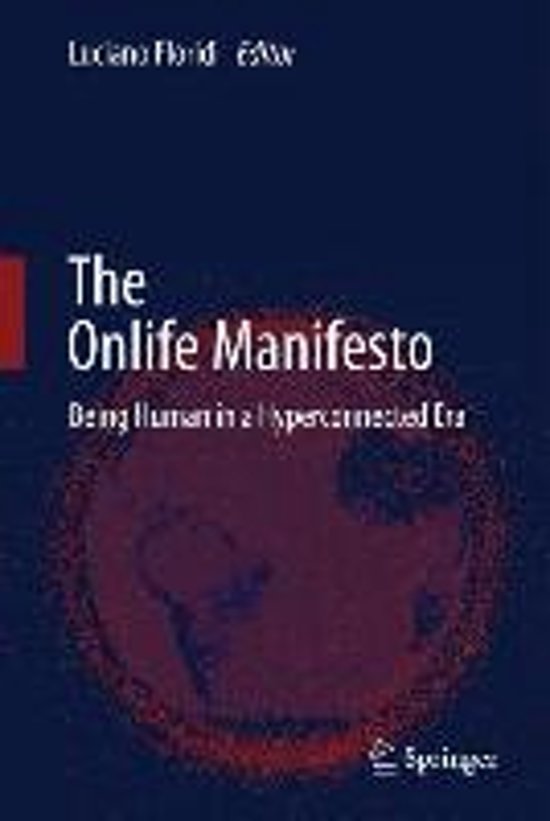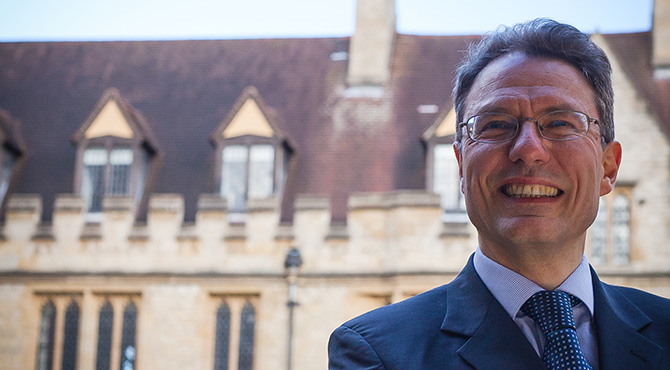Inspired by Shannon Vallor’s book “Technology and the virtues: A philosophical guide to a future worth wanting“, in which she discusses a range of technomoral virtues that we need to cultivate in order to flourish (2016, p. 118-155), I am writing a series of portraits of exemplars–people who embody these virtues.
From: https://www.oii.ox.ac.uk/people/luciano-floridi/
Luciano Floridi embodies the technomoral virtues of honesty, perspective, flexibility and justice.
Luciano Floridi is currently Professor of Philosophy and Ethics of Information and Director of the Digital Ethics Lab, at the University of Oxford, Oxford Internet Institute, and holds several other academic positions. He was originally educated as a historian of philosophy; he then became interested in analytic philosophy (MA) and in epistemology and philosophy of logic (MPhil and PhD). He contributed greatly to the Philosophy of Information (and Technology), and Information (and Computer and Digital) Ethics, e.g., in his recent books: “Philosophy of Information” (2011), “The Cambridge Handbook of Information and Computer Ethics” (editor) (2010), “Information: A Very Short Introduction” (2010), “The Fourth Revolution: How the Infosphere is Reshaping Human Reality” (2014), and “The Routledge Handbook of Philosophy of Information” (2016).
Moreover, Floridi has been deeply engaged with initiatives on the socio-ethical value and implications of digital technologies and their applications; nationally (e.g., in the UK, with the House of Lords, the Cabinet Office, and the Information Commissioner’s Office), internationally (e.g., member of the EU’s Ethics Advisory Group on Ethical Dimensions of Data Protection), and with corporations (e.g., member of Google Advisory Board on “the right to be forgotten”). He is one of the members of the recently established High Level Group of Artificial Intelligence.

In the context of the European Commission’s Horizon 2020 research program, he was editor of the “Onlife Manifesto: Being Human in a Hyperconnected Era“. The authors of this Manifesto argue that “ICTs are not mere tools but rather environmental forces that are increasingly affecting: 1. our self-conception (who we are); 2. our mutual interactions (how we socialise); and 3. our conception of reality (our metaphysics); and 4. our interactions with reality (our agency).” Moreover, they argue that this impact of ICTs is “due to at least four major transformations: a. the blurring of the distinction between reality and virtuality; b. the blurring of the distinction between human, machine and nature; c. the reversal from information scarcity to information abundance; and d. the shift from the primacy of stand-alone things, properties, and binary relations, to the primacy of interactions, processes and networks.”
From: https://aeon.co/essays/true-ai-is-both-logically-possible-and-utterly-implausible
Floridi also contributed to the debate on Artificial Intelligence. In response to alarmist messages by Stephen Hawking, Bill Gates and Elon Musk, Floridi wrote that “True AI is not logically impossible, but it is utterly implausible” (“Should we be afraid of AI?“). Instead of being overly optimistic/utopian or overly pessimist/dystopian, he proposes to be realistic about AI and use it for the greater good and benefits of society: “We should make AI environment-friendly [and] human-friendly […] We should make AI’s predictive power work for freedom and autonomy […] And finally, we should make AI make us more human.”
In his search for scientific rigour and his efforts to generate an overall vision on the role of ICTs, Floridi embodies the technomoral virtue of honesty and perspective, which Vallor defines as, respectively, “an exemplary respect for truth, along with the practical expertise to express that respect appropriately in technomoral contexts” (2016, p. 122), and “a reliable disposition to attend to, discern and understand moral phenomena as meaningful parts of a moral whole” (2016, p. 149).
In his engagement with society and collaborations with policy makers and corporatons, Floridi embodies the technomoral virtues of flexibility and justice, which Vallor defines as, respectively, a “reliable and skillful disposition to modulate action, belief, and feeling as called for by novel, unpredictable, frustrating, or unstable technosocial conditions” (2016, p. 145), and a “characteristic concern for how emerging technologies impact the basic rights, dignity, or welfare of individuals and groups” (2016, p. 128).
PS: Presentation ‘AI as a force for good’ at the World Summit AI 2018, Amsterdam:
Possibly, you find that Luciano Floridi embodies other virtues as well. Or you may have other ideas about the virtues discussed above. Please post them below or contact me at: marc.steen-at-tno.nl



